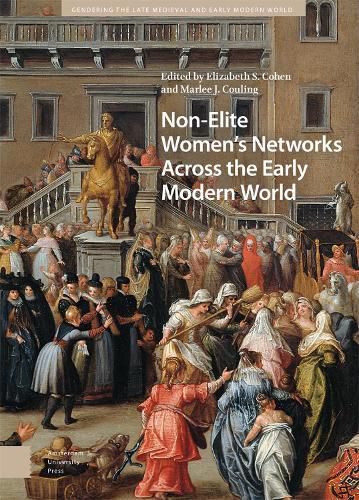Readings Newsletter
Become a Readings Member to make your shopping experience even easier.
Sign in or sign up for free!
You’re not far away from qualifying for FREE standard shipping within Australia
You’ve qualified for FREE standard shipping within Australia
The cart is loading…






Non-elite or marginalized early modern women-among them the poor, migrants, members of religious or ethnic minorities, abused or abandoned wives, servants, and sex workers-have seldom left records of their experiences. Drawing on a variety of sources, including trial records, administrative paperwork, letters, pamphlets, hagiography, and picaresque literature, this volume explores how, as social agents, these doubly invisible women built and used networks and informal alliances to supplement the usual structures of family and community that often let them down. Ten essays, ranging widely in geography from the eastern Mediterranean to colonial Spanish America and in time from the sixteenth to the eighteenth centuries, show how flexible, sometimes ad hoc relationships could provide crucial practical and emotional support for women who faced problems of livelihood, reputation, displacement, and violence.
$9.00 standard shipping within Australia
FREE standard shipping within Australia for orders over $100.00
Express & International shipping calculated at checkout
Non-elite or marginalized early modern women-among them the poor, migrants, members of religious or ethnic minorities, abused or abandoned wives, servants, and sex workers-have seldom left records of their experiences. Drawing on a variety of sources, including trial records, administrative paperwork, letters, pamphlets, hagiography, and picaresque literature, this volume explores how, as social agents, these doubly invisible women built and used networks and informal alliances to supplement the usual structures of family and community that often let them down. Ten essays, ranging widely in geography from the eastern Mediterranean to colonial Spanish America and in time from the sixteenth to the eighteenth centuries, show how flexible, sometimes ad hoc relationships could provide crucial practical and emotional support for women who faced problems of livelihood, reputation, displacement, and violence.